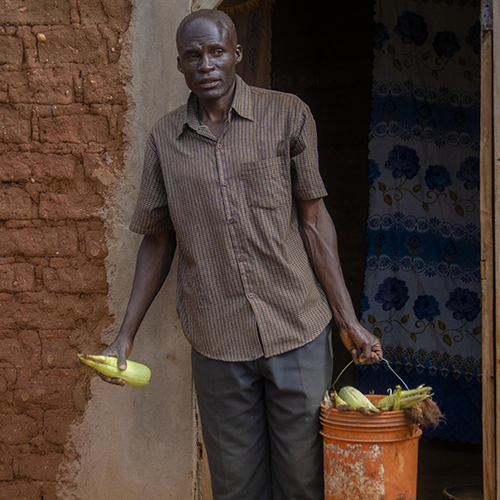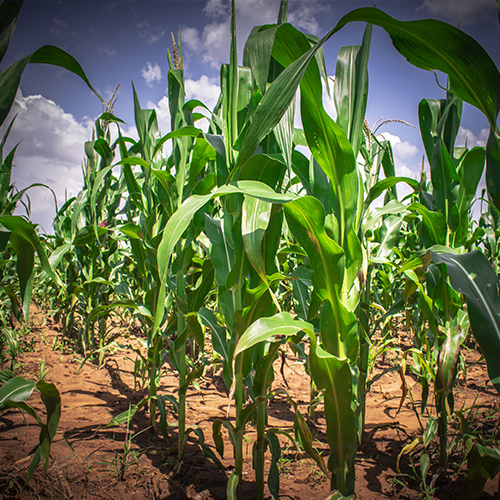I’m able to pay school fees for my children and provide nutrient rich foods for my family
Meet Mr. Donat Mdao (47 years old) a Lishe Endelevu crop model farmer who lives in Kongwa at Matongoro ward of Dodoma Region. He is a farmer and the only parent to his three under five children after his wife passed away a year ago.
Before the implementation of Lishe Endelevu Mr Donat used to practice tradition ways of farming for over 10 years Unfortunately, he didn’t have farming knowledge such as intercropping, proper spacing, using improved seeds, tolerant crop varieties, early maturing crops, timely weeding, pest and disease control. Despite his hard-working efforts his farm activities were never profitable nor did they provide his family a nutritious diet

“I have been getting incurring losses consistently for years, but since the training I received from USAID Lishe Endelevu I can finally see the profit and I’m able to take care of the family, like paying school fees for my children also providing nutrient rich foods for my family. Even better, I have trained my fellow farmers these modern techniques and more than six farmers have adopted some farming practices like intercropping and spacing.”
Before the death of his wife, Mr Donat Mdao attended Lishe Endelevu male support group meetings where he received nutrition education and counselling through the use of Social Behavior Change Kit it that aims to improve health, nutrition, caregiving and water, sanitation and hygiene (WASH) behaviors that made him a knowledgeable farmer and responsible father. He takes care of his children by providing regular consumption of nutrient-rich food. His children are healthier and happy.
“Before the training I used to plant a lot of seeds in one hole ending up with poor harvests. After the training and using the quality seeds I received from Lishe Endelevu project, I am finally making a living and am able to take care of my family since my income has increased. I plan to expand my farm since I have enough quality seeds that I have reserved from the last harvest.”
The farmer also practised different effective agricultural practices (GAP) including intercropping, proper spacing, improved seeds, tolerant crop varieties, early maturing crops, timely weeding, pest and disease control.

Save the Children has been providing high-impact maternal, new-born and child health and nutrition interventions through the USAID’s flagship nutrition activity in Tanzania. The interventions aim to improve nutrition services for women of reproductive age, children under five, and adolescent girls in Dodoma, Iringa, Rukwa and Morogoro.
 Tanzania
Tanzania